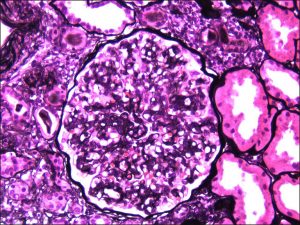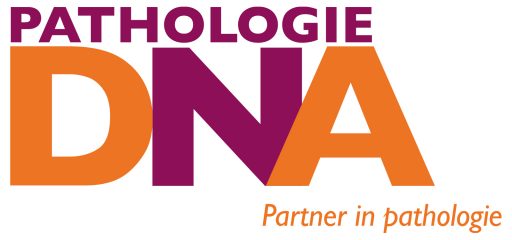Subspecialties and areas of interest
The pathologists at Pathologie-DNA subspecialise to increase expertise and shorten turnaround times. Each pathologist practises two to four subspecialties and closely monitors developments in each respective field. Moreover, they participate in clinical discussions and maintain contact with clinicians.
Our sub-specialisation is possible because we have a great number of pathologists, who work at various locations for all hospitals affiliated with Pathologie-DNA. The ability to assess slides independent of the location and a joint Laboratory Management System (LMS) are a precondition for this. That is why the digitalisation and introduction of an LMS at the three laboratory locations are our priority.
- Bone and Soft Tissue Pathology
- Cytopathology
- Dermatopathology
- Endocrine Pathology
- Gastroinstinal Pathology
- Gynecopathology
- Hematopathology
- Hepatopathology
- Head-Neck Pathology
- Breastpathology
- Nephropathology
- Neuropathology
- Perinatalpathology
- Pulmonary Pathology
- Urogenital Pathology

The standards for the ‘expert pathologist / pathologist with assignable expertise’
- Expert knowledge of the area of expertise, including integration of molecular pathology
- Structural participation in diagnostics for the area of expertise
- Structural participation in the relevant multi-disciplinary meetings
- Providing and/or attending ,specific training courses
- Being the principal pathologist for the clinicians with respect to the area of expertise, and acting as a pathologist with a recognisable expert function within the relevant clinical departments
- Active in a state-of-the-art pathology department (see below)
- Participation in panels / (guideline) expert working groups with specific requirements (like an agenda, attendance registration and the reporting of case numbers and diagnoses)
For the department in which the 'expert pathologist' is embedded:
State-of-the-art pathology department
- ISO accreditation (NVVP target standard)
- Participation in NVVP Professional Inspection (is a requirement for re-registration of medical specialists)
- Participation of one or more pathologists in the oncology committee, tumour working group, boards, care paths, within their own hospital(s)
- Expertise in molecular pathology is available in the department and/or the department participates in a partnership in which high-quality molecular diagnostics are carried out with adequate turnaround times
- Continuity of occupation of the area of expertise is guaranteed. By means of double occupancy, network collaboration, digital pathology, passing cases on to another expert pathologist, etc
- The department structurally covers the multi-disciplinary meetings with staffing by an expert pathologist (target standard 80%)
